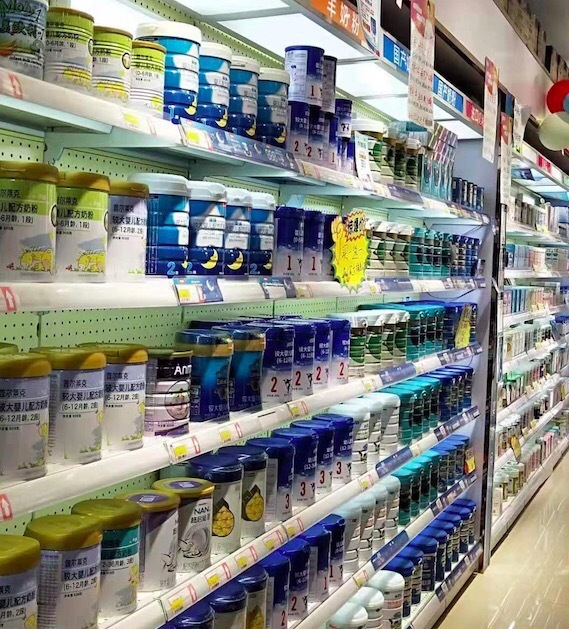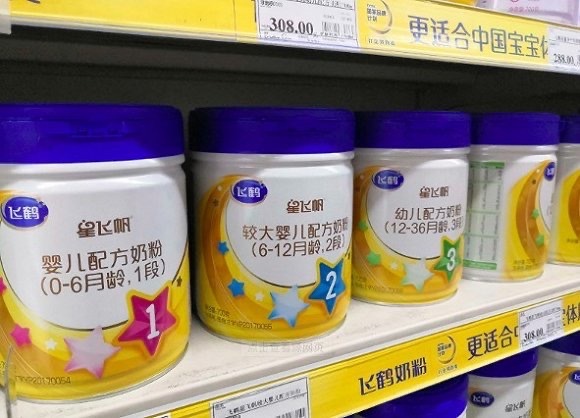The lower-tier markets have become over-saturated. What's worse? The number of newborns may continue to drop.

By ZHAO Xiaojuan
“Business has never been this bad before!” LI Xinyi thought to herself. She wondered if it was time to close down the baby store she had been running for three years.
Her 200-square-meter-store is in Jinzhong, a typical provincial town in Shanxi, China, with a small population and a conservative consumer market. In the past few years, thanks to the lifting of China’s long-standing birth limits, she was able to work with many new customers shopping for their second children.
But, since last year, competition became more fierce. Two franchised baby stores opened near her shop. Plus, e-commerce also cut into her profits. For the last two years in a row, her profits dropped by 20%.
What really made her want to give up was this number: 11 million. That’s how many babies were born in China in 2019. The numbers of newborns decreased from 2018 by 27%, which means, infant formula businesses like hers will face even more challenges in 2020.
Similarly, in Xiaxian, a small town one thousand kilometers from Beijing with a population of no more than 400,000, WANG Aihui also felt the pressure. Her “Loving Dear” baby store has been open for less than a year. She has been extra careful in selecting infant formula brands.
“Almost every day, some infant formula brand comes and asks about selling their products in our store,” Wang told Jiemian News, “but we won’t just say yes to everyone.” When selecting her products, she watches both profit margins and brand recognition.

In her store, a six-layered shelf displays more than 100 different products from many famous brands. Wang believes that baby products are unique to the buyer, thus consumer spending habits are different than they are for other consumer products. “Moms these days really spend! Yes, they may live in small towns, but they are still very much willing to pay a hefty price for high-end products like Nestle Wyeth,” she said.
Strong sales don’t necessarily mean high profits, though.
The brand with the largest selection at “Loving Dear” is Goldmax, made in New Zealand. Its high profit margin is only part of the reason. More importantly, as Wang told Jiemian News, the store has strong pricing power with Goldmax. Also, “a brand representative comes every week, telling us about their entire sets of promotional plans, even bringing with them all the promotional gifts,” said Wang.
China’s lower-tier cities pose the prospect of immense potential growth for infant formula, according to a December 2019 speech by LI Shengli, leading researcher at China Dairy Industry Association. 58% of children between zero and three years old live in lower-tier cities, where 89% of the offline sales growth originates.
With fewer newborns and more fierce competition; however, when these brands try to enter the highly localized market, they can only adopt very concentrated strategies, tailoring their promotional plans to very specific segments of consumers, which is extremely labor-intensive.

Such strategies, such as mobilizing large sales forces to quickly capture and educate consumers in lower-tier cities, started with Feihe and Junlebao, two domestic infant formula companies. According to a December interview given by LENG Youbing, the founder of Feihe, as early as 2013, the company identified baby stores as a valuable marketing resource and built a strategy to cater to them.
Yuobing says they reasoned that these stores would generate high brand stickiness, as young mothers not only shop there, but also seek child-raising services and advice. “Feihe has a staff of three thousand consumer-education personnel and 12 thousand sales associates — the largest in the country,” SONG Liang, a senior analyst covering the dairy industry, told Jiemian News. Such a large sales force boosted Feihe’s revenue from CNY370 million in 2016, to CNY10.4 billion in 2018.
FrieslandCampina, a dairy company from the Netherlands, also started to strategize for the lower-tier cities between 2016 and 2017. It introduced “Dutch Lady” — its Southeast Asian brand, to mainland China. The company entered the lower tier markets through baby stores.
Spokesperson from FrieslandCampina told Jiemian News that compared to their peers in first and second tier cities, moms from smaller towns rely more on friends and acquaintances when making parenting decisions. They rely on advice from baby store staff more, who, they feel, are more experienced and authoritative. In fact, reviews and recommendations given by baby store staff usually become the determining factors when moms decide which brand to buy.
As of November of 2019, Dutch Lady has hit the shelves of more than four thousand baby stores in tens of thousands of cities across the country. In fact, township-level markets make up around 80% of all “Dutch Lady” sales.
Despite the effort made by these companies in town-level markets, the obstacles remain formidable, due to the complexity of the distribution channels there.
An anonymous source from the formula industry told Jiemain News that some domestic companies would “do literally anything” when trying to enter those highly local markets, seeking favors from immunization clinics, pediatric hospitals, or even mayors and village leaders for good reviews or even exclusive partnership. These methods, of course, hurt fair competition and are illegal. However, according to the source, almost all domestic dairy businesses acquiesce. After all, it has become increasingly difficult to gain new customers. More widespread breast-feeding has further slowed down the sales of stage-one formula: the product line for 0-6 month-olds.
“My competitors would also seek favors from local clinics and hospitals,” said Li Xinyi, the owner of the Jinzhong store. She herself doesn’t have these local connections. With e-commerce stealing more customers away, she plans to wind down her infant formula product line next year if profits continue to fall.
E-commerce is indeed the final blow.
Li said her store could not simply eliminate big brands such as Aptamil, Dutch Lady, and Nestle Nan despite their thinning profit margins. Even with price cuts, many customers still stockpiled their infant formula supply from online platforms, during “Double Eleven”, China’s Cyber Monday. This further hurt business at her stores.
According to Song Liang, the affordable prices on e-commerce platforms, especially those of big-name brands, make online shopping feel like a better deal. That in turn steers profits away from brick-and-mortar baby stores, who need to sell products with higher margins. And even the big brands themselves can engage in unfair competition. But when asked, no dairy brands responded to inquiries from Jiemian News.
For FrieslandCampina, success in lower-tier markets depends on a brand’s comprehensive sales force, including its distribution models and marketing innovation. Both enable them to have a good grasp of young parents’ spending habits and maintain high margins. Brands that wage price wars would never again gain quick market growth, as in previous years.
To keep high margin and maintain sales channels, formula businesses can only seek breakthrough from product design. Their solution: switching to goat milk and going organic.
Currently the leading goat milk infant formula is Kabrita, owned by Ausnutria, a dairy conglomerate. In the first three quarters of 2019, it recorded CNY2 billion in sales, a 40% increase over 2018. On major e-commerce platforms, Kabrita product prices range from CNY360 to CNY460 (around USD 52 to 66).
Another trend is to go higher-end.
As of June 2019, the infant formula sector recorded double digit sales growth over June 2018, 38% of which is attributable to price increases, according to data provided by consumer goods consultancy Kantar Worldpanel. Both big cities and lower-tier markets are embracing higher-end products. Even Junlebao, a domestic brand known for its affordability, launched an “A2 formula” line that would “lower the sensitivity” of babies’ digestive tracts. The price of it is no lower than the leading brand in this category.
Similarly, there are also more specialized product lines formulated for moms. Nestle Wyeth, for example, introduced its prenatal supplement product line, Materna, at the China International Import Expo in November 2019. The line offers multivitamins and other nutritional supplements for prenatal and lactating women. There are also more specialized varieties that claim to prevent mastitis and gestational diabetes.
Consumers in these lower-tier cities, however, are not willing to pay any price.
Goat milk and organic formulas are the must-haves for a baby store which claims to have good product selections. Both Wang and Li agree on this, however, that a price tag exceeding CNY400 (around $57 USD) would more or less deter a customer from buying. For a typical customer in a small town, a more reasonable price range is CNY150-35 (around $22 to 50 USD).
Additionally, brand recognition and distribution channels sometimes are intertwined, which may become a challenge for the industry.
“Dutch Lady” encountered such a challenge when it first entered lower-tier markets. “Some moms bought our products from their local baby stores, and their kids liked it,” FrieslandCampina told Jiemian News, “but even these customers would switch to other brands when they found out that few other moms in their circle used our products.”
According to industry analyst, Song Liang, it has been a year since new regulations passed that tightened brand registration rules for infant formulas. As the market becomes more concentrated, brands that come late will face an uphill battle.